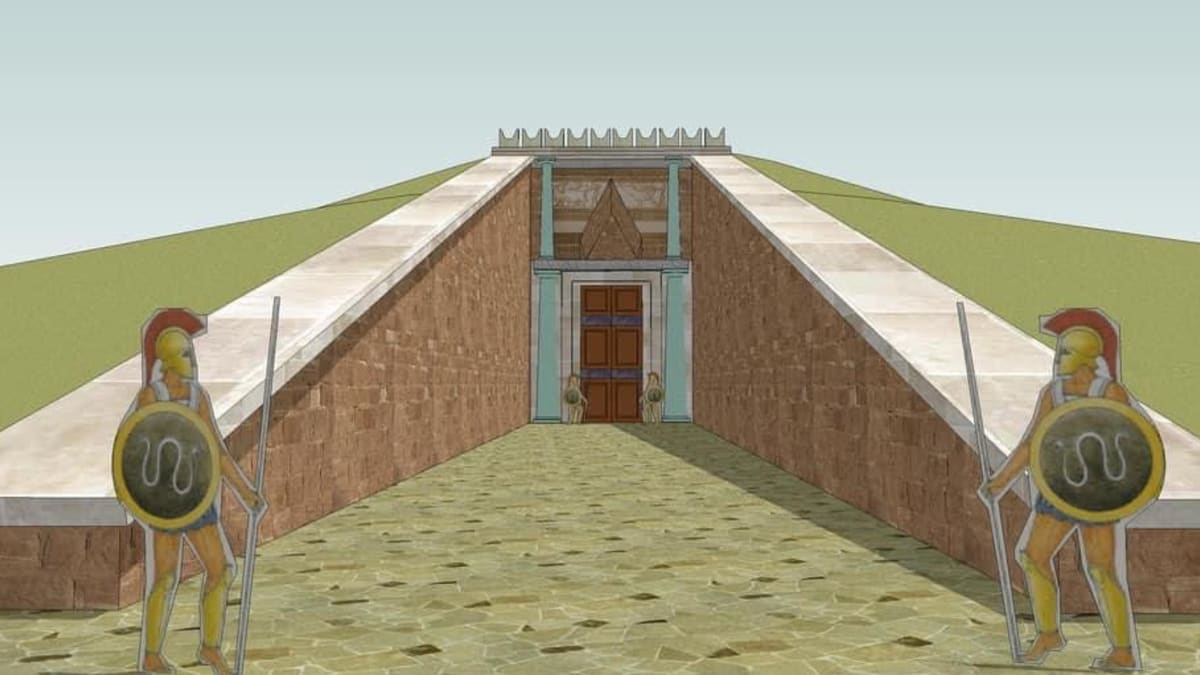Was building the Treasury of Atreus at ancient Mycenae a strategic move that would eventually bring an end to a brutal military movement? For Perseus must have known that the ancient Arcadians would never accept such rulers.
Did Perseus, a prince of Argos, bring Pelops the southern Greece peninsula (that would eventually be named Peloponnese in his honor) to fund infrastructure and temples?
Pausanias asserted that “the ancient Greeks believed Perseus to have been founder of the ancient Mycenae citadel,” which would mean that the citadel was founded, or rather fortified, around 1350 BC.
The findings of the ancient Mycenae site all matched with Homer’s description in The Iliad of “a grand royal center.”
However, the town of Mycenae existed long before that time. It was said to be named after the princess Mycene, a daughter of the very ancient king Inachus of Argos.
The 1350 BC date happened to coincide with the date of the construction of the Treasury of Atreus.
The Treasury of Atreus was funded and filled with treasures by the wealthy Anatolian king Tantalus, for his grandson Atreus (first son born son of Pelops) to access when he grew up and became king of ancient Mycenae.
The large tholos stood by itself, further away from the other royal tombs that had been found outside the citadel and located just off the main road leading to the Lion Gate entrance, the main entrance of the Mycenae citadel.
It was positioned in such a way that its grandness was visible from all the roads that led in from the Argolic area, a constant reminder of the power and strength of the then young Mycenaean kingdom to those who looked up from the roads below.
The Perseid dynasty ruled ancient Mycenae and some of the surrounding areas for at least three generations and ended with King Eurystheus, “the last of the Perseid royal line.” He was the king who commissioned Hercules to perform his twelve labors.
After King Eurystheus was killed fighting the Athenians, Atreus, son of Pelops, grandson of Tantalus, became king of Mycenae, starting off the “short-lived and drama-filled” Atreid dynasty.
The drama had included the initiation of the Trojan War, which led the Mycenaean-era kings and their soldiers to leave behind their kingdoms for a long period of time without proper defense.
The main reason the Mycenaean rule would come to an end.
Excerpt from “Artemis Child: on the East Coast of the Peloponnese”

June 7, 2024
Ancient Mycenae and building of The Treasury of Atreus